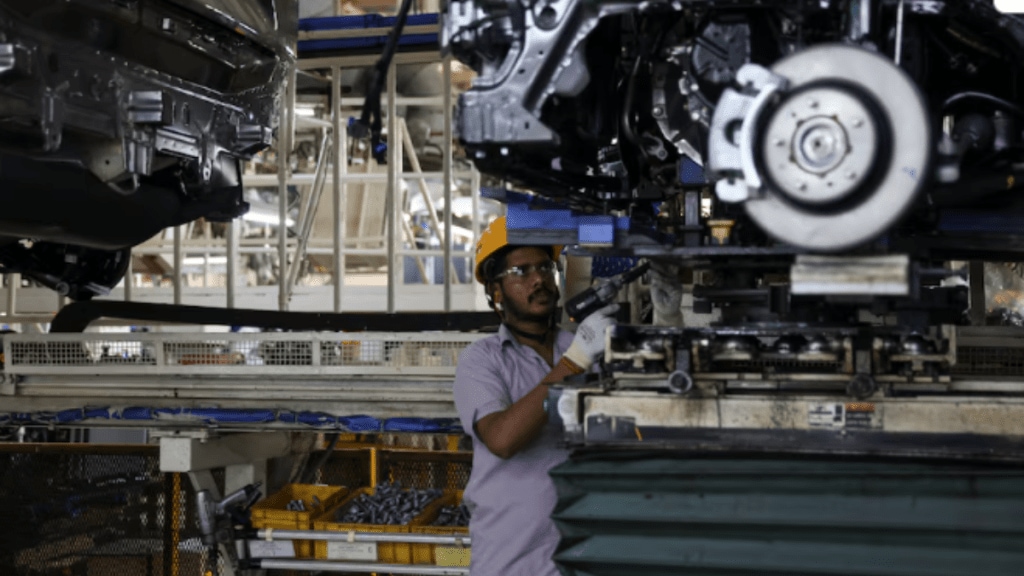By Anish Shah
The manufacturing sector has been identified as a critical spoke in India’s journey towards Viksit Bharat. Over the past few years, the government has embarked on a holistic approach to strengthen the domestic manufacturing capabilities. The Make in India initiative, the performance-linked incentive scheme, the focus on both ease and cost of doing business, one nation, one tax, and easing of infrastructure bottlenecks are all geared towards enabling a seamless manufacturing ecosystem.
Further, one of the most important aspects of this strategy has been the development of industrial corridors in collaboration with state governments. The Cabinet approval to 12 industrial nodes/cities under the National Industrial Corridor Development Programme will propel us to take the next leap forward. This is indeed a welcome step. The move is in line with the area-focused development approach of the government and is also aligned with the principles of Gati Shakti.
With a planned cost of `28,602 crore, these announcements indicate an investment potential of `1.5 trillion and could create about 10 lakh direct and 30 lakh indirect employment opportunities. The intent of the government is clear — develop world-class industrial cities to transform the manufacturing landscape of the nation.
In fact, several Indian cities are already on the global map today and the announcements will enable many more to join them over the next few years. Hyderabad, for instance, accounts for one-third of the global vaccine production, Rajpura in Patiala or Dighi Port could be the next in line. Bengaluru is among the largest start-up hubs in the world and houses over 400 global R&D centres; it is time we explored the potential of Zaheerabad in Telangana. Noida/Greater Noida has emerged as a bustling electronics manufacturing space, and the next in the pipeline could be Orvakal in Andhra Pradesh.
The government has set the ball rolling to transform many more such cities at speed and scale. This will not only position India as a stronger player in global value chains but also ensure a more balanced regional development.
The approach of cluster-based industrial development has been tried and tested across regions/countries and has proven to be a significant economic accelerator. Countries like Vietnam and Taiwan have been successful examples of attracting substantive investments by developing new economic and industrial zones.
The development of these greenfield industrial cities could help accelerate the production shifts towards India. Developed land parcels will make it easier for domestic and international investors to set up manufacturing units in India. The focus on concepts including plug-and-play and walk to work with planned urbanisation are bound to be game changers. This approach ensures that the cities are equipped with advanced infrastructure that supports sustainable and efficient industrial operations and minimises labour migration.
To achieve the vision of becoming a manufacturing hub, we must aim at a global share in the sector of 12% from the current 3.1%, which would require a 16x increase in manufacturing GDP. We need to aim to boost overall manufacturing productivity fivefold by 2030. Nonetheless, there are no qualms about the fact that we are on the right course. Both the central and state governments are playing a facilitative role and have established mechanisms to draw investments into the country.
It is imperative to work on the next set of ease of doing business reforms, especially those related to factors of production. Incorporating sunset clauses in policies, laws, rules and regulations, introducing regulatory impact assessment road map to ensure regulations achieve their intended objectives, and decriminalising minor offences remain critical. Also, deepening the quality ecosystem and bringing down logistics costs will enhance manufacturing competitiveness in the country.
Effective implementation will be the key to translate the vision of India as a manufacturing prowess into reality.
The author is President of FICCI (Federation of Indian Chambers of Commerce & Industry).
Disclaimer: Views expressed are personal and do not reflect the official position or policy of Financial Express Online. Reproducing this content without permission is prohibited.


